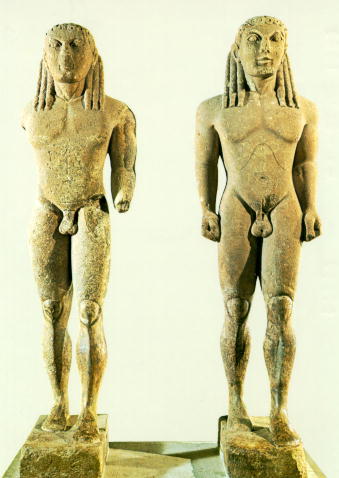Anthropomorphism and Greek Humanism
Morford and Lenardon, Chapter 4
The Nature of the Gods
mortality vs. immortality
natural vs. supernatural
anthropomorphism and theriomorphism
The Divine Hierarchy
| gods |
extraordinary immortals |
| heroes |
extraordinary mortals |
| humans |
ordinary mortals |
Olympian
gods
chthonic deities
nymphs, naiads, dryads, etc.
The divine spark is in all
living things.
Zeus and Monotheism
Cleanthes'
Hymn to Zeus
Greek Humanism
"Man as the measure of all
things." (Protagoras)
"Wonders are many but none is
more wonderful than man" (Sophocles' Antigone)
Anthropomorphism as a celebration of the
intersection of the divine and the human.
Myth, Religion and Philosophy
The
Legendary History of Herodotus
Story of Solon and Croesus
(Herodotus I,30-46)
Tellus the Athenian
Cleobis and Biton
Interpretations
insecurity of human life (Croesus the king
becomes a slave)
fate: Atys (= "under the influence of
Ate or Doom") and Adrastus (= "the one who cannot escape")
the unknown future (oracles)
gods reward human faith (Croesus on the
funeral pyre
This material has been published on the web by Prof. Tom Sienkewicz for his students
at Monmouth College. If you have any questions, you can contact him at toms@monm.edu.
Return to Monmouth
College Department of Classics Homepage
